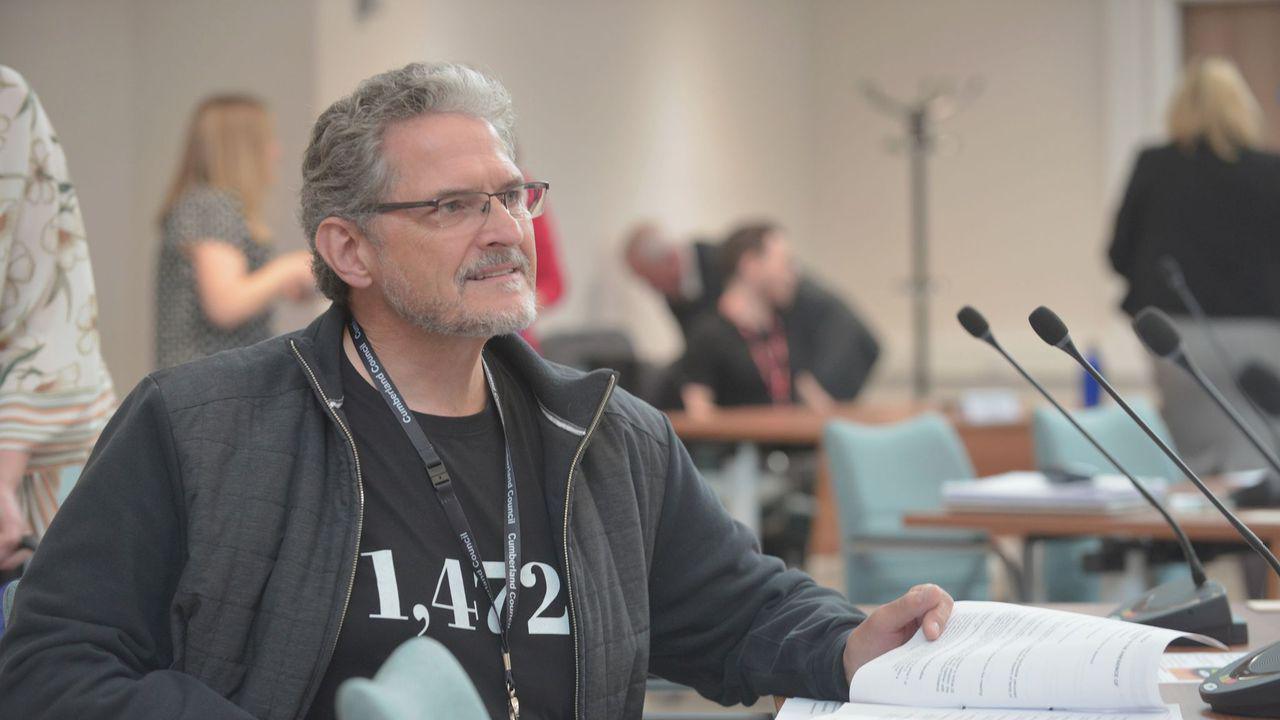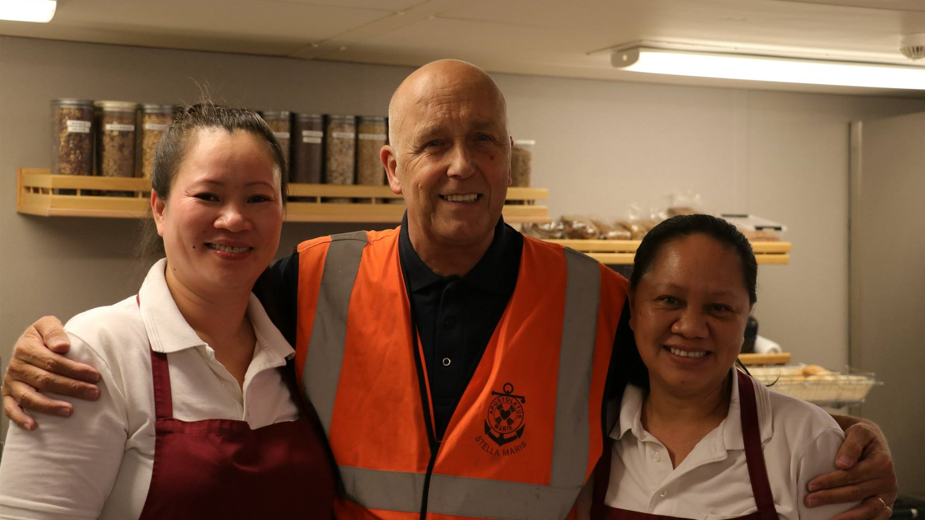'I wouldn't be here without prostate test'

Brian Wernham is halfway through cancer treatment
- Published
A man who first discovered he may have prostate cancer after buying an online test has called on others to be proactive about the health risk.
Cumberland councillor Brian Wernham, who is halfway through a three-year treatment course, urged men to get tested for the disease.
He said he believed he was only alive today because he had taken the issue into his own hands.
Prostate Cancer UK said men over 50 in the UK had the right to a blood test which could help spot the disease, but outdated guidelines prevented GPs from starting those conversations. The Department for Health has been approached for comment.
Mr Wernham said he had gone to his GP about two years ago with complaints about fatigue and was prescribed antidepressants.
"You think 'I'm turning 60, maybe it's just getting old'," he said.
After speaking to an American urologist online about an unrelated issue, Mr Wernham was advised to get a prostate-specific antigen (PSA) test, which can identify high levels of the protein and point towards prostate cancer.
But PSA levels can be high for a variety of reasons, including an enlarged prostate, or remain normal despite cancer.
'I wouldn't be here'
Mr Wernham said his GP had put him on a non-urgent waiting list for the test when he asked about it.
"After I put the phone down, I went on to Amazon and just typed in PSA test," he said.
The £7.90 finger-prick test suggested Mr Wernham might have prostate cancer.
The councillor was then able to convince his GP to send him to a cancer referral unit, where he was diagnosed with stage three prostate cancer.
"I wouldn't be here if I had not done the test," he said.
Prostate Cancer UK said current NHS guidelines meant it was "each man's responsibility to find out his own risk and to ask for a PSA test himself".
The charity does not recommend home-testing kits, as they do not come with professional follow-ups, and urged men to speak with their GPs.

Paul Atkinson is urging all men over 50 to get checked for prostate cancer
Paul Atkinson from Blyth, Northumberland, also has prostate cancer, but it is too late for it to be cured in his case.
He was told on his birthday in 2022 his cancer had spread and he had between two and five years to live, although he is responding well to treatment.
"I was waking up to go to the bathroom more often but I just didn't realise that was one of the symptoms," he said.
"People of my generation, and my father’s generation, didn't talk about things like that.
"Now I urge every man, especially if they’re over 50, to get checked."
Follow BBC North East on X, external, Facebook, external, Nextdoor, external and Instagram, external. Send your story ideas to northeastandcumbria@bbc.co.uk.
Related topics
More stories from across the BBC
- Published14 November 2024
